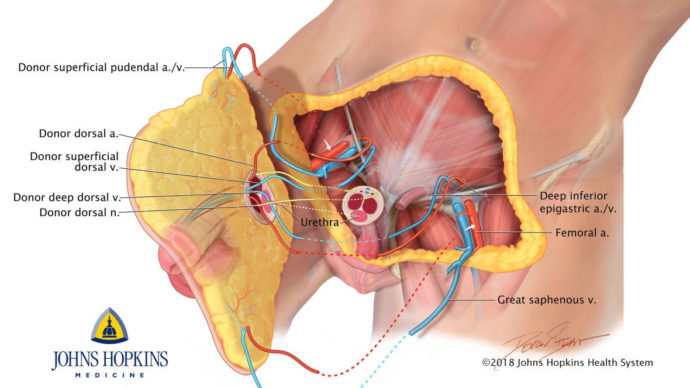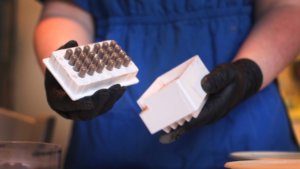
First full penis-scrotum transplant patient ‘to regain full function’
It was a very delicate operation.
Surgeons at Johns Hopkins Hospital accomplished a medical first last month, with a successful full transplant of a penis, scrotum, and part of the abdominal wall.
The transplant recipient has chosen to remain anonymous.
Dr. Gerald Brandacher was one of the lead surgeons. He spoke with As it Happens host Carol Off from Baltimore. Here is part of their conversation.
Dr. Brandacher, we know that the man who received this transplant does not want to be identified, but can you tell us anything about him?
Yes. This is a young soldier who sustained extensive injuries to his genital region, as well as his lower extremities in Afghanistan.
And this resulted in a massive tissue defect that included the entire penis, scrotum, and large parts of the abdominal wall that could not be reconstructed with any conventional reconstructive technique.
I presume his legs also were taken?
That is correct. So this is certainly a devastating injury for every young man.
Where soldiers have experienced such injuries, after a blast, one of the first things they ask is, “have my genitalia been affected?”
How difficult is it to recover from that? What kind of function will he have now?
We expect this patient to regain full function, with regards to both urinary function as well as sexual function.
So he will have sensations?
Yes.
Will he be able to reproduce? Can he father a child?
No. This is something that is considered not [acceptable] for various ethical reasons, because we would transplant the genetic background of the donor for every child that would result.
Can you tell us about the donor?
Due to confidentiality reasons I cannot tell you anything about the donor.
Is this something that someone can say “yes, when I die, I would like to donate all parts of my body?”
This is a very special consent process that is not included in the traditional consenting to be an organ donor. So this would not be a driver’s licence donation. It’s a very sensitive and special consent process, where the organ procurement coordinators approach the individual donor family and ask for this specific gift.
And we are extremely grateful to the donor family, that they have decided to move forward and help — in their probably most difficult hour — a person that they did not know and enable that person to go on to full restoration, and to lead a normal life in the future.
For this particular unique ask, I think one of the motivating factors was that we ask our recipients beforehand if it is OK to share some of their background and story with the donor family.
And we have shared the military background [of] our recipient with the donor family. And also in their family they have a military background, and this was something that they immediately felt was right and should be done.
What kind of mental adjustment do you have to make when you have somebody else’s genitals?
From the world experience we have now with extremity transplants — with face transplants and other types of reconstructive transplants — the patients who have been screened and deemed eligible for these types of transplants all immediately refer to these new body parts as their own.
I’ve seen many of those over the years. And I was always struck that never a patient refers to the transplant as a graft.
They always consider, These are my new hands. This is my new face.”
And it was the same in this case. The patient immediately took ownership, and considered [himself] to be whole again. That was actually his first reaction, that he’s whole again.
Where do you see this going?
From a technical perspective, there [are] no limitations anymore. We could literally replace any body part or any organs that you can think of.
It is important to choose the right recipients, to have patients that show the best outcome.
And I think once we have established this, the field will go on and hopefully broaden — and become [the] standard of care for the future for patients who literally don’t have any other option by means of conventional reconstruction.
Written by Julian Uzielli and Kevin Ball. Interview produced by Julian Uzielli. Q&A edited for length and clarity.
Original article at: http://www.cbc.ca/radio/asithappens/as-it-happens-thursday-edition-1.4636690/doctors-expect-first-full-penis-scrotum-transplant-patient-to-regain-full-function-1.4636692








